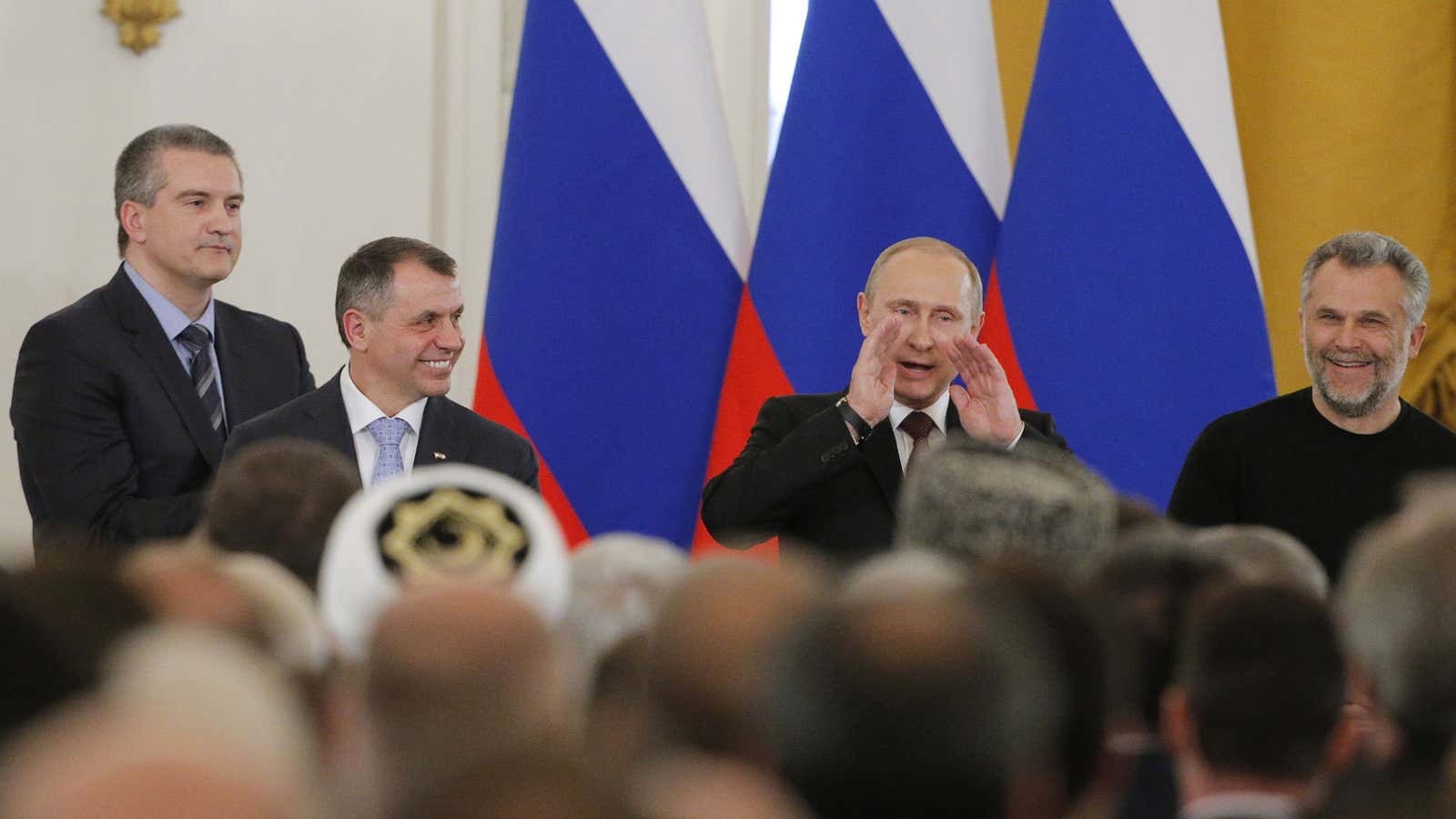The credit rating company Standard & Poor’s says it may cut its rating on the Russian Federation’s government bonds, citing the economic damage that Russia’s move into Crimea has already done to the country. “In our view, the deteriorating geopolitical situation has already had a negative impact on Russia’s economy,” S&P analysts wrote.
Here’s why.
- The ruble — The currency has tumbled roughly 9% against the dollar this year. It wasn’t all because of geopolitical pressure—the ruble, like other emerging market currencies, has slipped as the US Federal Reserve moves away from easy monetary policy. But the selloff worsened amid the Crimea crisis, suggesting at least some capital was fleeing the country. If left unchecked, the tumbling currency will increase inflationary pressures in Russia. And with economic growth weak, the feeble ruble raises the risk of stagflation setting in.
- The central bank — To nip inflation in the bud, the central bank has moved to raise interest rates sharply. That’s traditionally the answer to a weakening currency. But higher rates aren’t a great answer, because they also slow down the economy. And it’s already slow. Last year, the GDP of the Russian Federation grew by a scant 1.3%, the slowest since 1999. “In our view, there is a significant downside risk that growth will fall well below 1% if the uncertainties caused by the geopolitical tensions do not subside in the near term,” S&P analysts wrote.
- Politics — S&P sees a “material risk” that violence will spread to other cities in eastern Ukraine. If that happens, the West can be expected to seriously ratchet up the relatively weak sanctions it announced in response to the Crimea takeover. Tougher sanctions would also weigh on economic growth.
S&P isn’t raising an alarm about Russia’s ability to pay its creditors, which is buttressed by its strong revenues from selling commodities such as oil and gas. But they think the way Russia is behaving will likely keep international investors leery of sending their capital to the country. Some $60 billion in capital has already flowed out of Russia this year, S&P says. (That’s almost as much as during all of 2013.) “Geopolitical reaction to Russia’s incorporation of Crimea could further reduce the flow of potential investment and negatively affect already weak economic growth,” S&P analysts wrote.




